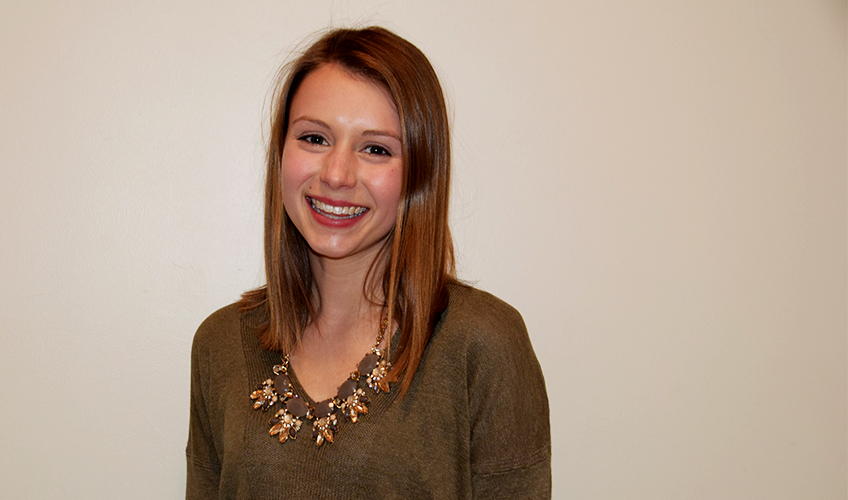
“The nurses sprinted in because she was so loud, and they were concerned,” recalls Wisconsin Delta Grace Hegemann. It was a memorable moment during her time as a high school student volunteer at Children’s Hospital of Wisconsin in Milwaukee. It was also the moment it clicked for Grace: she wanted to become a nurse.
On this particular day, Grace was in a rotation in the neurosciences area and asked, “Are there any patients that need special attention today?” The nurses directed her to a 17-year-old girl — the same age as Grace at that time — who they said was difficult because she would not talk or interact with anyone at the hospital. The girl was severely disabled, but Grace was not given any additional information. The nurses asked Grace if she would simply sit with the patient and be there for her.
Grace entered the room and sat down to watch a movie with the girl. She began talking to the girl and quickly realized she was only able to speak on the level of a four or five-year-old. Grace suddenly felt the urge to sing along to the movie. She started singing and dancing around the room; the girl started laughing. Grace’s singing became louder and the dancing became wilder; the girl could not stop laughing hysterically. This was the moment the nurses came in to see what the commotion was about and found Grace and the girl having a great time together.
The girl had been there for two weeks and no one else was able to accomplish what Grace did in a few hours. The nurses were so impressed by Grace’s ability to get the patient to open up, laugh and smile.
Currently a sophomore at Marquette University, Grace is focused on earning her bachelors degree in nursing with a minor in Spanish for the health profession. She hopes to become a pediatric nurse and eventually a nurse practitioner. “The idea of being able to make a kid smile is the greatest thing in the world,” Grace said. I could not agree more.
